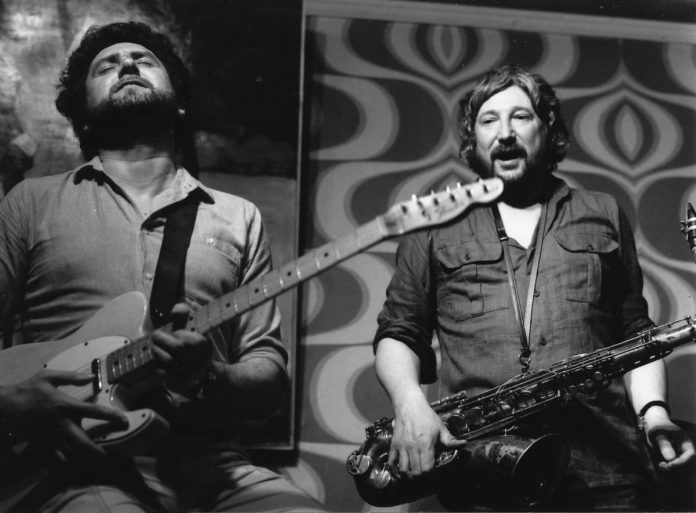With Christopher Bird consistently making pleasant noises about the Morrissey/Mullen group, I looked forward to the prospect of checking them out. This I did recently at the 100 Club, and caught a couple of sets that, I suspect, were just a little out of the ordinary.
This was true if only because, on this occasion, the drum chair was occupied by the very versatile Martin Drew, and it raised the question of just how was Ronnie Scott’s right hand man going to cope in this far from temperate boiler room? Well, the answer was, rather well! There was more than a hint that he had been doing his homework by listening to the likes of the Crusaders, but he gave a good account of himself.
It cannot be easy for a percussionist to master the clipped verticality and terse phraseology of modern funky drumming. Especially when he has worked for so long in an orthodox hard bop environment. Nevertheless, it must be a good thing for a player to stretch himself, to face different problems and to answer them from within his own experience.
The stimulation was certainly there in this unit, with Morrissey’s swaggering solo method literally beyond style, and with Mullen building involved solos that bear out Christopher Bird’s affirmation that the “group’s whole concept is anti-rock”.
The only slight reservation I had with that contention was sparked by the end of the first set, when bassist John Mole took the kind of solo that makes long periods of rock concerts such a bore. From its crowd-pleasing opening to its end, it was full of drama and devoid of content; it traded in rock clichés and did less than justice to the player. Up to that stage Mole had made a valuable contribution to the group, his rhythmic thrust, at times, vital to a drummer coming to terms with a new group and a new style.
Morrissey/Mullen are a difficult to categorise but, on the strength of this one hearing they richly deserve their growing following. It would be a mistake, however, to see them as anything more than a high-quality fusion group. Their influence on the mainstream of jazz worldwide must, inevitably, be negligible and Christopher Bird is probably right when he says that their success will militate against them in the eyes of the over studious.
















